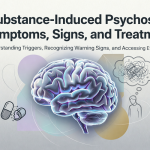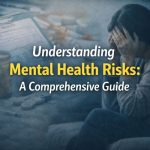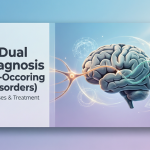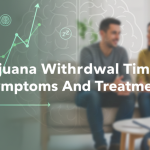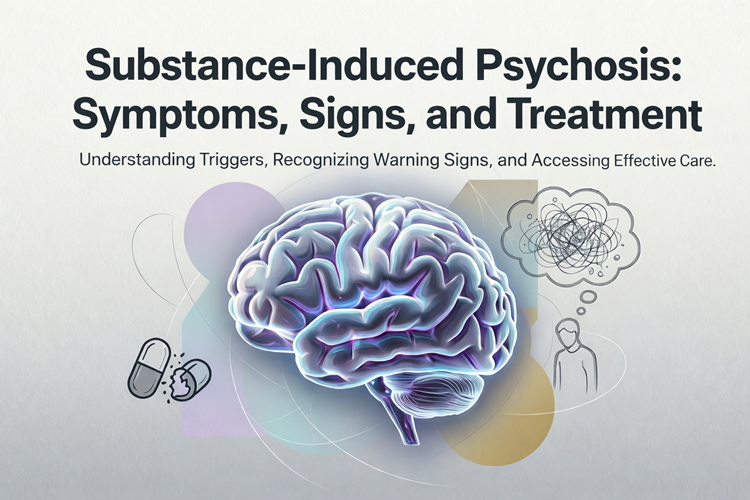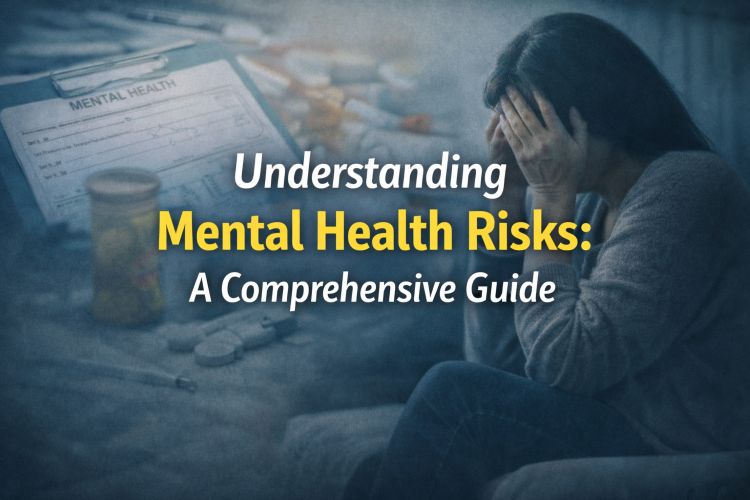Paranoid Personality Disorder (PPD) is a mental illness that is manifested through intense mistrust of other people, regardless of having no conclusive evidence of any mistrust. The condition makes individuals enter into an adverse perception of ambition by others, a sense of being attacked or intimidated by others, and unhealthy relationships with other persons in their surroundings
Our licensed specialists provide superior treatment of paranoid personality disorder at DeLand Treatment Solutions by guiding the clients to gain insight into the origin of their behavior, build trust, and enhance the quality of life.
What is Paranoid Personality Disorder?
Paranoid Personality Disorder (PPD) is a psychological disorder that is initiated by a fundamental problem of mistrust and suspicion of others which is a chronic one, whereby the person has a feeling of suspicion of other people even without them suspecting anything. Individuals affected by PPD believe that people are all out to harm, exploit, or cheat him or her, leading to serious complications not only in their relationships, but work and in their lives as a whole.
We offer evidence-based and caring treatment to personality disorder paranoid symptom carriers at DeLand Treatment Solutions. If you or a loved one is showing indicators of PPD, contact us immediately at (386) 866-8689 to get the help of an expert.
Paranoid Personality Disorder Symptoms
The symptomatology of the paranoid personality disorder typically appears during early adulthood and may cover every aspect of life. Among the most frequent ones, the following can be listed:
- Persistent distrust of others without a valid reason
- Belief that others are trying to exploit, harm, or deceive them
- Reluctance to confide in others due to fear that information will be used against them
- Interpretation of innocent remarks as demeaning or threatening
- Holding grudges and being unforgiving
- Extreme sensitivity to criticism
- Suspicion about a partner’s loyalty or faithfulness without justification
A person who has PPD will tend to be seen as emotionally alienated, cold, and secretive, meaning that a person will not have and maintain normal relationships properly.
100% Confidential Support is Available 24/7
No matter what you’re going through, you’re not alone. Our dedicated team is here to provide a safe, judgment-free space where you can talk openly and honestly. Whether you need emotional support, resources, or just someone to listen.
We’re here for you—completely confidential and always respectful of your privacy. Call us today!
What Causes Paranoid Personality Disorder?
Although no one knows what causes paranoid personality disorder, study suggests both biological, psychological, and environmental causes:
- Genetics: Having a personality disorder or being delusional in your thoughts runs in the family, thus making it more susceptible.
- Childhood Trauma: Can be contributed by emotional or bodily maltreatment, negligence or, early life experiences of betrayal.
- Temperament: Individual differences include being more suspicious or threat-sensitive.
PPD is seen in males more frequently and usually manifests itself during adulthood or the early stages.
How is Paranoid Personality Disorder Diagnosed?
A PPD diagnosis is made by a mental health professional in the following ways:
- Clinical Interviews: To measure thoughts, feelings and actions.
- Behavioral History: Family, social and medical history.
- DSM-5 criteria: the diagnosis fits particular patterns included in the Diagnostic and Statistical Manual of Mental Disorders.
Important: PPD victims do not think that they require any assistance in most cases, which makes it extremely difficult to diagnose and treat them.
Paranoid Personality Disorder Treatment Options
The management of the paranoid personality disorder is aimed at assisting the victim in thinking and relating better with others.
At DeLand Treatment Solutions, we provide holistic services that are customized to the individual’s needs.
1. Psychotherapy for Paranoid Personality Disorder
This is the major and most effective way of treatment.
- Cognitive Behavioral Therapy (CBT): Assistance in recognizing and changing negative thought patterns.
- Support Therapy: Establishing Trust and Coping.
- Schema Therapy: It concentrates on the ingrained edifice of beliefs obtained in early life.
Note: Trust between a therapist and him might take time since the nature of the disorder.
2. Medication (If Needed)
There is no particular medication that could be specifically used to treat PPD, but medical experts can provide medications that may address the following symptoms:
- Anxiety
- Depression
- Paranoia or suspicious thoughts
Such drugs are possibly antidepressants, antipsychotics, or anti-anxiety drugs on a case-by-case scenario.
Living with Paranoid Personality Disorder
Living with PPD can be quite tough- not only to those affected but to their loved ones as well. The disorder, left untreated, may cause:
- Social isolation
- Workplace challenges
- Marital or family conflicts
- Legal or safety concerns in extreme cases
However, the majority of those affected by PPD can develop strategies that will help them live with this condition with the mentorship of a professional, and this will improve their relationships.

Why Choose DeLand Treatment Solutions?
DeLand Treatment Solutions focuses on treating paranoid personality disorder through tried and true compassionate treatment. Our licensed mental health professionals are trained in dealing with difficult personality disorders and re-establishing trust in both themselves and the people around them.
We offer:
- Personalized treatment plans
- Trauma-informed care
- One-on-one and group therapy sessions
- Family support and education
- A private, supportive, and safe environment
Ready to Get Help?
Do not permit paranoia to rule over your life or your relationship with other people. Therefore, be it that you need a favor or the person close to you does, assistance is found professionally.
Visit DeLand Treatment Solutions today or call us at (386) 866-8689 and schedule a confidential consultation to begin your journey of recovery.
FAQs About Paranoid Personality Disorder
1. Can paranoid personality disorder go away on its own?
No, PPD does not typically resolve without intervention. While symptoms may improve over time, professional treatment is essential for managing the disorder effectively.
2. Is paranoid personality disorder the same as paranoia?
Not exactly. The symptom of paranoia might be caused by numerous diseases such as schizophrenia or substance use. The paranoid personality disorder is a definite diagnosable disorder; there are chronically recurrent patterns of distrust not related to delusions of psychosis.
3. How can I support a loved one with paranoid personality disorder?
Be patient, have no confrontations, and prompt them to get professional help. Being too exertive might cement their suspicion; hence consult a therapist on how to do it best.
4. What are the triggers for paranoid personality disorder?
According to a person, the triggers can vary, but some of the most popular ones are cases of betrayal, criticism, loss of control or some stressful situation in life. Symptoms intensify more in those situations that pose a threat to their of safety or autonomic.
5. What causes personality disorders?
Personality disorders, including PPD, are suspected to be caused by a combination of genes, events that the subject experienced as a child (i.e., trauma or neglect), and environment. These factors affect how a particular individual feels towards self and other people.






